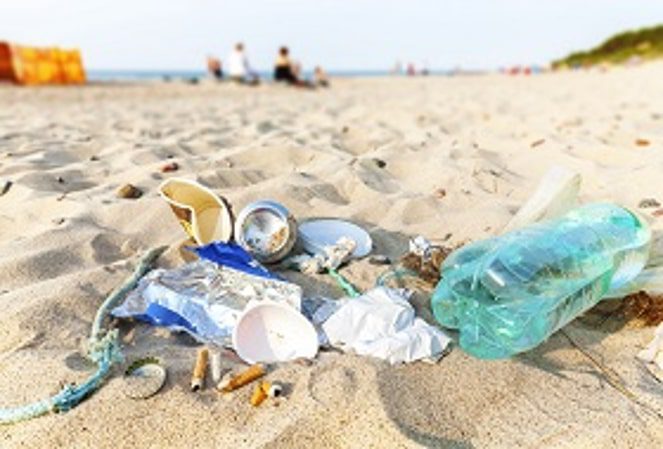Stubborn stubs and persistent plastic: Litter on Welsh beaches is not going away
· Marine Conservation Society reveals results of its 2022 Great British Beach Clean
· 77% of rubbish collected in Wales this year made from plastic
· Prevalence of smoking-related litter remains high with average of 35 stubs found per 100m stretch of beach
The results are in from the Marine Conservation Society’s annual Great British Beach Clean, which took place from 16th – 25th September 2022, and was sponsored by soup brand, Cully & Sully.
561 volunteers took part in 41 events across Welsh beaches. Together, they cleaned and surveyed 4.7km of beaches and collected 316kg of litter.
Taking part in the Great British Beach Clean, volunteers not only clear beaches of litter but help tackle ocean pollution by gathering vital data used by the charity to lobby governments and create change for cleaner seas and a healthier planet.
The charity’s volunteers recorded a 23% decrease in number of items collected per 100m from 414 in 2021 to 319 in 2022. However, a few items stood out, showing the need for targeted Government action on these persistent pollutants.
Stubborn stubs and persistent plastic
The most common type of waste found was plastic, making up 77% of all material collected in Wales at the Great British Beach Clean. The most common items found were plastic and polystyrene pieces, closely followed by cigarette stubs.
Despite cigarette stubs falling from a record high average of 64 per 100 metres in 2021, their prevalence on Welsh beaches is still concerning. The Marine Conservation Society is working with ASH Cymru to call on the end of plastic in cigarette filters and action to reduce smoking-related litter, to help tackle a human health concern, and ocean health, together.
Top ten most common litter items on Welsh beaches (average per 100m)
1. Plastic and polystyrene pieces – 79.5
2. Cigarette stubs – 34.9
3. Crisp and sweet packets, lollipop sticks etc. – 20.3
4. Plastic caps and lids – 18.3
5. Fishing line (recreational angling) – 8.8
6. Plastic bags – 8.2
7. Wet wipes – 6
8. Plastic bottles – 6
9. Metal bottle tops or lids – 6
10. String or cord – 5.7
Return of the plastic bag highlights need for strong legislation
Despite the encouraging trend of a decrease in overall litter, Wales is unique among UK nations in seeing the return of plastic bags to the list of top ten items, with wet wipes containing plastic climbing to seventh on the list. Nearly half (47%) of rubbish found in this year’s Great British Beach Clean in Wales was from public sources.
Gareth Cunningham, Head of Conservation Wales at the Marine Conservation Society said, “Data from the Great British Beach Clean clearly shows the need to shift to using reusable products and away from throwaway single-use items.
“We cannot continue to litter our marine environment, and I hope that with the introduction of the Single Use Plastics Bill, the number of plastic items will fall across our beaches in years to come. Strong legislation, in Wales and across the UK, is vital to tackling the challenges of plastic pollution.”
As the Single Use Plastics Bill continues its progress through the Senedd, the Marine Conservation Society hopes to see this urgently needed bill in place at the earliest opportunity.
The charity runs beach cleans throughout the year, with survey results contributing to a global database, International Coastal Cleanup.
The charity’s data shows that visible litter on UK beaches is of great concern, but the Marine Conservation Society is also campaigning to tackle invisible chemical pollution which is poisoning marine life across the globe. The #StopOceanPoison campaign is demanding the UK Government turn off the tap on chemical pollution. Find out more and sign the petition, which now has over 10K signatures, here.
For more information on the Marine Conservation Society’s work on ocean pollution, please visit the charity’s website: www.mcsuk.org.
Help keep news FREE for our readers
Supporting your local community newspaper/online news outlet is crucial now more than ever. If you believe in independent journalism, then consider making a valuable contribution by making a one-time or monthly donation. We operate in rural areas where providing unbiased news can be challenging. Read More About Supporting The West Wales Chronicle






















